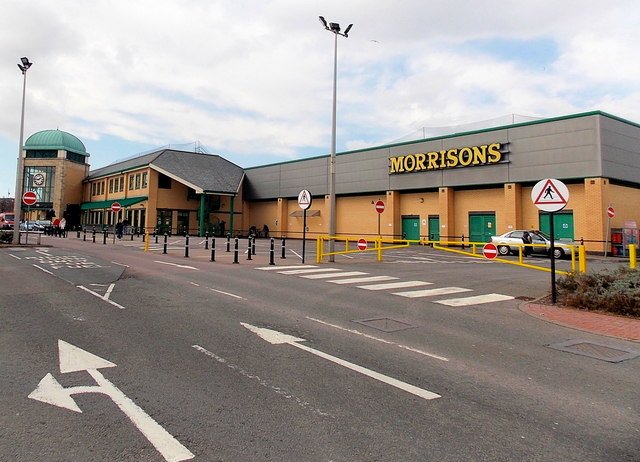Currency exchange plays a significant role in global finance, and the pounds to euro exchange rate is particularly important for those who travel, trade, or invest between the UK and the Eurozone. This article will provide a comprehensive look at the pounds to euro exchange rate, how it works, and its implications on various aspects of personal and business finances. We will also explore factors influencing this exchange rate, recent trends, and offer tips for exchanging currency efficiently.
What is the Pounds to Euro Exchange Rate?
The pounds to euro exchange rate refers to how much one British pound (GBP) is worth in euros (EUR). Exchange rates fluctuate based on several factors, including economic indicators, interest rates, political events, and market sentiment. Understanding the current exchange rate is crucial for anyone dealing with currency conversion, whether for travel, investment, or business.
Exchange rates are typically expressed as a numerical ratio, such as 1 GBP = 1.15 EUR. This means that for every pound, you would receive 1.15 euros. The exchange rate can fluctuate daily, making it essential to stay informed, especially when large sums of money are involved.
Factors Influencing the Pounds to Euro Rate
Several key factors influence the pounds to euro exchange rate, and understanding these elements can help you make more informed decisions regarding currency exchange.
Economic Data and Indicators
Economic data such as GDP growth, unemployment rates, and inflation play a significant role in determining the strength of a currency. Strong economic performance in either the UK or the Eurozone tends to boost the value of that region’s currency. For example, if the UK reports strong GDP growth or a decrease in unemployment, the British pound may appreciate relative to the euro.
Interest Rates Set by Central Banks
Central banks, such as the Bank of England (BoE) and the European Central Bank (ECB), influence exchange rates by adjusting interest rates. Higher interest rates in one country typically lead to a stronger currency because higher rates attract foreign investment. Conversely, lower interest rates can weaken a currency.
For example, if the BoE raises interest rates while the ECB keeps them unchanged, the pound might strengthen against the euro as investors seek higher returns in the UK.
Political Stability and Events
Political events such as elections, government policies, and geopolitical tensions can significantly impact the pounds to euro exchange rate. For instance, uncertainty surrounding Brexit negotiations and the UK’s departure from the European Union caused substantial fluctuations in the exchange rate. Political stability tends to encourage investment and confidence in a currency, while uncertainty can lead to volatility.
Global Market Sentiment
The pounds to euro exchange rate is also influenced by broader market sentiment. In times of global economic uncertainty, investors often seek safe-haven currencies like the US dollar or Swiss franc, which can indirectly impact the GBP-EUR exchange rate.
Trade Balances
The trade balance between the UK and Eurozone countries can influence the pounds to euro exchange rate. If the UK exports more to the Eurozone than it imports, this can lead to an increase in demand for the British pound, thereby driving up its value against the euro.
Historical Trends in the Pounds to Euro Exchange Rate
The pounds to euro exchange rate has experienced significant fluctuations over the years. Historically, the exchange rate has ranged from around 1.2 to 1.5 euros per pound. However, events such as Brexit and global financial crises have caused dramatic shifts in this range.
For example, following the Brexit referendum in 2016, the pound dropped sharply against the euro, reaching a low of around 1.1 EUR per GBP. Since then, the exchange rate has fluctuated as market sentiment and economic conditions have evolved.
How to Convert Pounds to Euro Effectively
When converting pounds to euros, it’s important to choose the right method to ensure you get the best exchange rate and avoid high fees. Here are some tips to help you convert your currency effectively:
Check the Current Exchange Rate
Before converting your currency, it’s essential to check the current pounds to euro exchange rate. Many online platforms and financial news websites offer real-time updates on exchange rates. Be sure to compare rates across different platforms to ensure you are getting a competitive rate.
Avoid Currency Exchange Kiosks at Airports
Currency exchange kiosks at airports often offer less favorable rates due to high service fees. If possible, avoid exchanging currency at airports and instead use a bank or a reputable currency exchange service.
Consider Using Online Currency Conversion Services
Online currency conversion platforms can often provide better rates than traditional exchange services. Many apps and websites offer competitive rates and low fees, making them a convenient choice for converting pounds to euros.
Use Credit or Debit Cards for Payments Abroad
If you’re traveling, using a credit or debit card for payments abroad can sometimes offer a better exchange rate than withdrawing cash from an ATM. However, be sure to check with your bank regarding any foreign transaction fees or ATM withdrawal charges.
The Impact of the Pounds to Euro Exchange Rate on Travelers
For travelers between the UK and the Eurozone, fluctuations in the pounds to euro exchange rate can significantly affect their spending power. A favorable exchange rate means travelers get more euros for each pound, while an unfavorable rate reduces their purchasing power.
Travel Costs and Expenses
When the pound is strong against the euro, travel expenses such as accommodation, meals, and activities tend to be cheaper for UK travelers. Conversely, if the pound weakens, these costs can increase, making travel more expensive.
Planning for Currency Exchange
It’s a good idea to keep an eye on the exchange rate when planning a trip. If the rate is particularly favorable, you might want to exchange currency in advance to take advantage of the better rate.
Business Implications of the Pounds to Euro Exchange Rate
The pounds to euro exchange rate is also critical for businesses that trade or operate across the UK and Eurozone. Fluctuating exchange rates can have a direct impact on profit margins, pricing strategies, and costs of goods sold.
Import and Export Costs
Businesses that import goods from the Eurozone or export to the Eurozone need to factor in exchange rate fluctuations when pricing products. A stronger pound can lower the cost of imports, while a weaker pound may increase the cost of goods purchased from the Eurozone.
Hedging Currency Risk
Many businesses engage in currency hedging to protect themselves from the risk of exchange rate fluctuations. By using financial instruments such as forward contracts or options, businesses can lock in exchange rates for future transactions, ensuring greater predictability in their financial planning.
How to Monitor the Pounds to Euro Exchange Rate
For those who need to stay updated on the pounds to euro exchange rate, there are several resources available:
Currency Conversion Websites and Apps
Many websites and apps provide real-time exchange rate data and even allow users to set up alerts to notify them when the rate reaches a specific level. These tools can help you track the best times to exchange currency.
Financial News Sources
Major financial news outlets, such as Bloomberg, Reuters, and CNBC, often provide updates and analysis on currency markets. Following these sources can help you understand the factors influencing the pounds to euro exchange rate.
Banking Services
Most banks and currency exchange services also offer tools to monitor exchange rates. Some even provide historical data, so you can assess trends over time.
Future Predictions for the Pounds to Euro Exchange Rate
Predicting the future of the pounds to euro exchange rate is always challenging due to the many unpredictable factors that influence currency movements. However, analysts look at economic forecasts, political developments, and global events to make educated predictions.
With the ongoing recovery from the COVID-19 pandemic and the long-term impacts of Brexit, many experts expect continued volatility in the pounds to euro exchange rate. As both regions recover from economic challenges, the exchange rate may stabilize over time, but it’s unlikely to remain entirely predictable.
FAQs
What is the Current Exchange Rate for Pounds to Euros?
The exchange rate fluctuates constantly due to factors like market demand, global events, and economic data. To find the latest rate, check a reliable financial website, currency exchange platform, or your bank’s app.
How Can I Convert Pounds to Euros?
You can convert pounds to euros through various methods:
Banks and Currency Exchange Services: Visit your bank or a currency exchange office for in-person conversion.
Online Currency Converters: Use platforms like XE, OANDA, or Wise for quick, real-time conversions.
ATMs Abroad: Some ATMs in European countries offer GBP-to-EUR conversion services.
Are Exchange Rates the Same Everywhere?
No, rates can vary depending on where you exchange money. Banks and currency exchange offices may offer different rates, and some may charge higher fees. Check multiple options to find the best deal.
What Fees Are Associated with Currency Conversion?
Currency conversion fees can include:
Transaction Fees: A percentage charged for the service.
Commission Fees: Some providers take a commission on top of the exchange rate.
Hidden Markups: Banks or services may offer less favorable rates as part of their profit.
How Do I Get the Best Exchange Rate?
To get a better rate:
Avoid exchanging money at airports, where rates are typically higher.
Check online providers for competitive rates and low fees.
Consider using a multi-currency bank card or service for lower conversion costs.
Can I Lock in an Exchange Rate in Advance?
Yes, some financial services offer the option to lock in exchange rates for a specific period. This can be helpful if you anticipate the pound weakening against the euro.
Do Credit Cards Offer Good Exchange Rates?
Credit cards usually offer competitive exchange rates, but watch for foreign transaction fees. Some travel credit cards waive these fees, making them ideal for international purchases.
Final Thought
The pounds to euro exchange rate is a dynamic and vital element of the global economy, with significant implications for travelers, businesses, and investors. Understanding how it works, what influences it, and how to manage currency conversion effectively can help you make better financial decisions. Whether you’re looking to travel to Europe, engage in cross-border trade, or simply convert your currency, staying informed about exchange rate trends is key to maximizing your financial outcomes.
To read more; Click here



